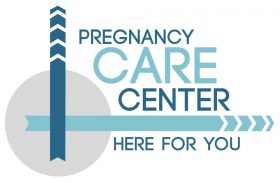When coming to terms with your unplanned pregnancy, the pregnancy options can seem overwhelming. It’s essential to know what you’re walking into with each abortion option. You may have questions like, “What is a surgical abortion vs. the abortion pill?” or “Am I too far along to have a medication abortion?” We hope to answer some of your questions and give you clarity.
There are risks involved with each abortion procedure. It’s vital that you first confirm your pregnancy before moving ahead with any type of pregnancy option. Our Pregnancy Care Center is here for you with free and confidential pregnancy tests and ultrasounds.
Different Types of Abortion
Surgical Abortion
There are two types of surgical abortion procedures that end a pregnancy: Dilation & Evacuation (D&E) abortion and Aspiration abortion. A D&E abortion involves a surgical process to dilate and remove the contents of the uterus using a surgical instrument called a curette. This surgical procedure is normally done for women around 14-16 weeks pregnant or further.
An aspiration abortion, also known as vacuum aspiration, is the most common surgical abortion method. Women who are up to 14 to 16 weeks pregnant can have an aspiration abortion. In this procedure, your cervix is stretched and your uterus emptied with a suction device. Both of these surgical abortion procedures are quite invasive.
Medication Abortion
Medication abortion uses two types of abortion pills to end a pregnancy. In this process, Mifepristone and Misoprostol are taken. The first pill, Mifepristone, works to block the progesterone hormone and causes the lining of the uterus to thin, which prevents the embryo from growing or implanting. The second pill, Misoprostol, makes the uterus contract and expel the embryo from the vagina.
Medication abortion can only be done up to the first 10 weeks of pregnancy and then a surgical abortion is required.
What Are the Risks?
You need to be aware of the serious risks before moving forward with any abortion procedure. There could potentially be long-term effects to abortion and side effects should be addressed by a medical professional.
Possible Risks of Surgical Abortion:
- Perforation of the uterus
- Damage to the cervix
- Scar tissue on the uterine wall
- Infection
- Heavy bleeding
Possible Risks of Medication Abortion:
- Incomplete abortion, which may need to be followed by surgical abortion
- An ongoing unwanted pregnancy if the procedure doesn’t work
- Heavy and prolonged bleeding
- Infection
- Fever
- Digestive system discomfort
Get the Answers You Need
It’s vital to get the answers you need about your pregnancy and be aware of any health risks. You should know how far along you are, confirm you have a viable pregnancy, and the location of your pregnancy. Confirm your pregnancy with a free and confidential pregnancy test and ultrasound at our center today.
Our team is here to support you and answer any of your questions. We are here to help you understand all the options available to you. Schedule an appointment with us today.
